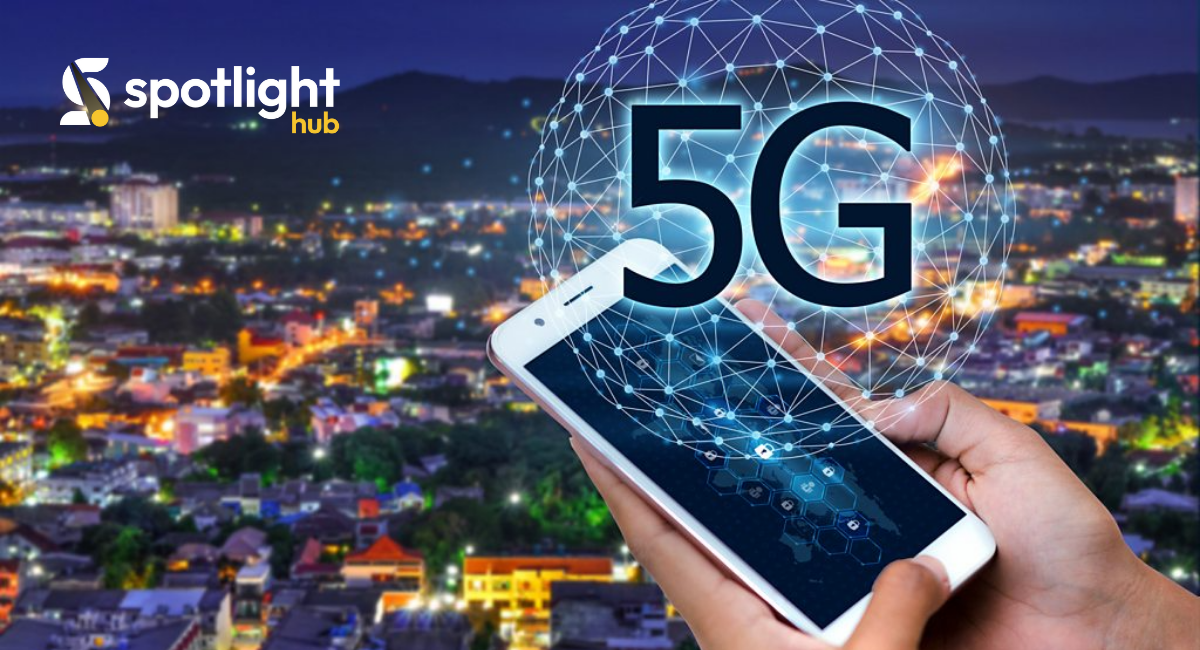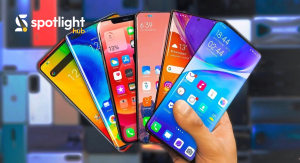The buzz around 5G has been growing louder over the last few years, with promises of faster speeds, improved connectivity, and a transformative impact on various industries. But what exactly is 5G, and why is everyone so excited about it? In this blog, we will break down what 5G is, how it works, and what it means for mobile connectivity in the coming years.
What Is 5G and How Does It Work?
At its core, 5G is the fifth generation of mobile network technology. It’s designed to be faster, more reliable, and capable of handling more devices than its predecessors (like 4G). While 4G brought us faster internet speeds and the ability to stream high-definition content, 5G takes things a step further.
The key difference between 5G and earlier generations lies in its ability to operate over higher frequency bands, which allows for much faster data transfer. In simpler terms, 5G can send and receive more data at once, leading to faster speeds and a more responsive experience on your mobile device.
5G also reduces latency, which is the time it takes for a signal to travel from one point to another. With 5G, this lag is dramatically reduced, which means you can interact with services and applications more quickly and smoothly.
How 5G Will Transform Various Industries
1. Healthcare
The healthcare industry stands to benefit significantly from 5G technology. With its low latency and fast speeds, 5G can enable real-time health monitoring and telemedicine on a much larger scale. Imagine a doctor being able to perform a remote surgery using robotic arms controlled over a 5G network—this is no longer a far-off dream, but a possibility.
Additionally, with 5G’s capacity to handle large amounts of data, it could be used to analyze medical data faster, potentially speeding up diagnoses and improving treatment outcomes. The ability to track patients in real-time using wearables that send constant data to healthcare providers could revolutionize how we manage chronic conditions and overall health.
2. Smart Cities
The concept of smart cities is all about creating more efficient, sustainable, and connected urban spaces. 5G plays a crucial role in making this a reality. With its ability to connect millions of devices, 5G could support smart streetlights, waste management systems, and traffic management tools that adjust in real time based on data.
For instance, traffic lights can adjust their timing based on traffic flow data, reducing congestion and emissions. Public services could be streamlined, and everything from parking to public transportation could be optimized through real-time data collection and processing powered by 5G networks.
3. Entertainment
When it comes to entertainment, 5G is set to change the game. With its lightning-fast speeds and low latency, streaming services like Netflix and YouTube will be able to deliver content in higher quality with fewer buffering issues. Virtual reality (VR) and augmented reality (AR) applications will also see a boost, as 5G will be able to support more immersive, interactive experiences with less lag.
Gaming, too, will benefit immensely from 5G. Cloud gaming services, where games are streamed rather than downloaded, will perform better, allowing for high-quality gameplay without the need for a powerful console or PC.
4. Transportation and Autonomous Vehicles
5G is expected to play a critical role in the future of autonomous vehicles. These self-driving cars need to process vast amounts of data from sensors and cameras in real-time. With 5G, this data can be transmitted and analyzed with minimal delay, improving safety and responsiveness on the road.
Moreover, 5G will help coordinate traffic systems more effectively, making transportation smarter and more efficient. For instance, a fleet of autonomous vehicles could communicate with each other to avoid accidents, improve traffic flow, and reduce congestion.
Benefits of 5G
1. Faster Speeds
Perhaps the most noticeable benefit of 5G is its speed. 5G promises speeds that are up to 100 times faster than 4G. This means faster download and upload speeds, smoother video streaming, and quicker access to cloud-based apps. You can download movies or large files in seconds, stream in 4K or 8K without buffering, and enjoy a seamless experience even when using bandwidth-intensive apps.
2. Low Latency
One of the most exciting aspects of 5G is its low latency, which means less lag. Whether you’re playing an online game, using a video call app, or operating an IoT device, 5G makes sure your commands are processed almost instantaneously. This improved responsiveness will be critical in fields like remote surgery, real-time gaming, and autonomous vehicles, where split-second decisions are crucial.
3. More Connected Devices
As the world becomes more connected, 5G is designed to handle an increasing number of devices. Unlike 4G, which struggles when too many devices are connected at once, 5G can support up to 1 million devices per square kilometer. This makes it ideal for IoT (Internet of Things) applications, where everything from your fridge to your thermostat can be connected to the internet.
This ability to handle large numbers of devices at once will make smart homes, wearable technology, and connected cities more reliable and efficient.
4. Enhanced Reliability
5G networks are designed to be more reliable than 4G, especially in crowded or high-demand environments. Whether you’re at a concert, sports event, or a busy airport, 5G ensures that your connection remains stable and fast, even with a lot of people trying to use the network at the same time.
The Challenges of 5G
Despite all its potential, 5G does come with some challenges. First, the infrastructure required to support 5G is extensive and costly. New towers, antennas, and technology need to be deployed to ensure widespread coverage, which could take time.
Additionally, the higher frequency bands used by 5G have a shorter range compared to 4G, meaning more towers and closer proximity to 5G access points will be needed to maintain strong signals. In some areas, especially rural regions, 5G coverage may take longer to roll out.
Conclusion
5G is more than just a faster internet connection; it’s a technology that will change the way we live, work, and interact with the world. From healthcare to entertainment, transportation to smart cities, 5G will enhance mobile connectivity and create opportunities for innovation across various industries.
As we move towards 2025 and beyond, the benefits of 5G will become increasingly clear. Whether you’re downloading your favorite show, using autonomous cars, or exploring new smart city features, 5G will make everything faster, more responsive, and more connected. It’s an exciting time for mobile technology, and we’re only just beginning to see its potential unfold.










